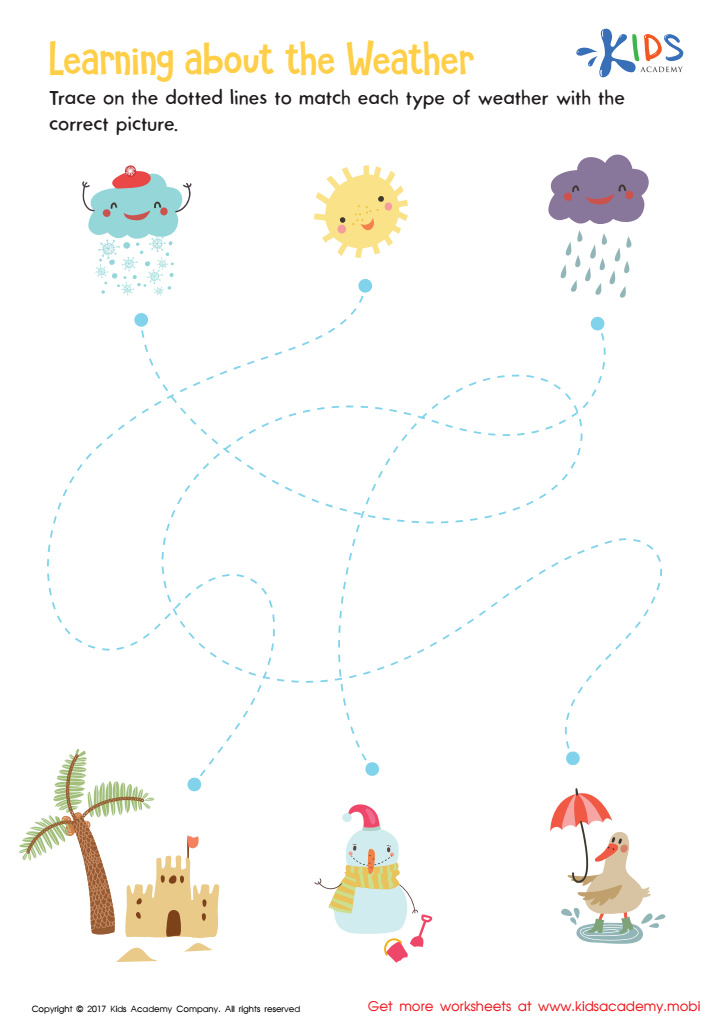Reading comprehension Matching Worksheets for Ages 6-9
7 filtered results
-
From - To
Enhance your child's reading skills with our Reading Comprehension Matching Worksheets designed for ages 6-9. These engaging activities promote critical thinking and understanding as kids match descriptive words to corresponding images, fostering both vocabulary development and contextual awareness. Perfect for use at home or in the classroom, these worksheets make learning exciting and interactive. From identifying main ideas to recognizing key details, your young learners will build a solid foundation in reading comprehension. Browse our extensive collection and watch as your child's literacy and confidence soar with each completed worksheet. Fun, education, and growth—all in one place!


Matching: Classifying Toys by Size Worksheet
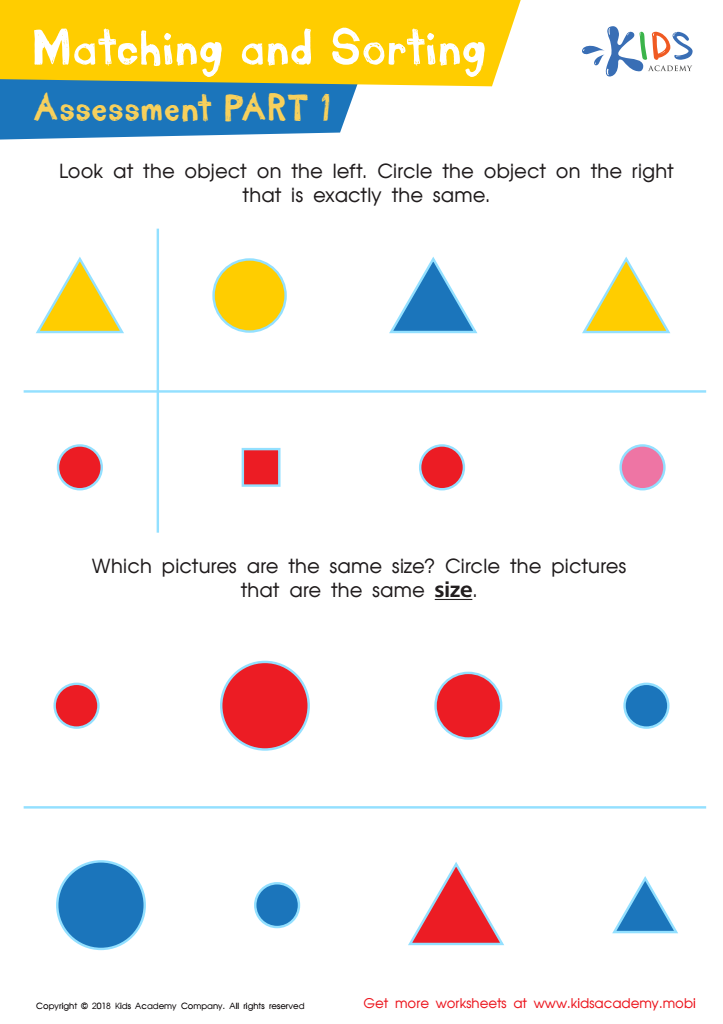

Matching and Sorting for Kindergarten: Assessment 1 Worksheet
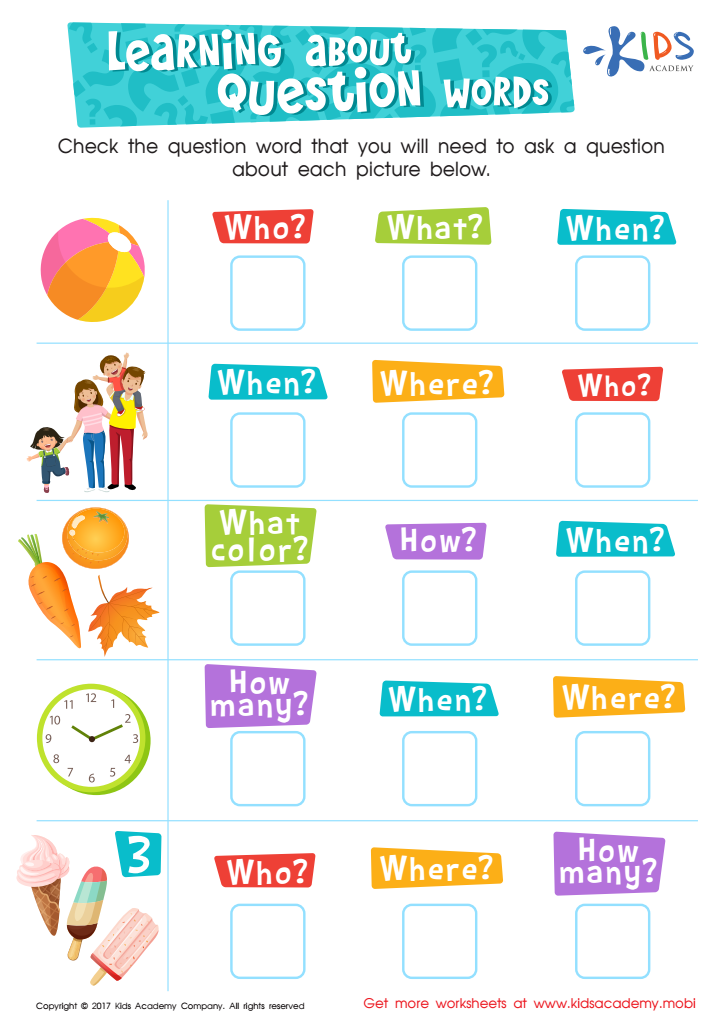

Learning about Question Words Worksheet
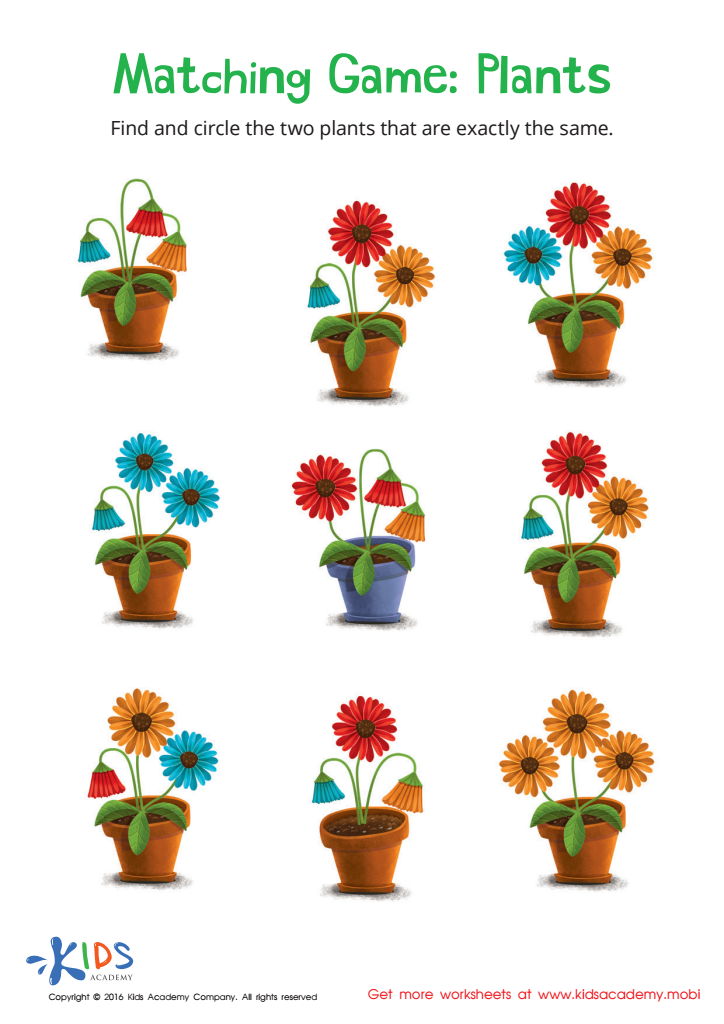

Matching: Plants Worksheet
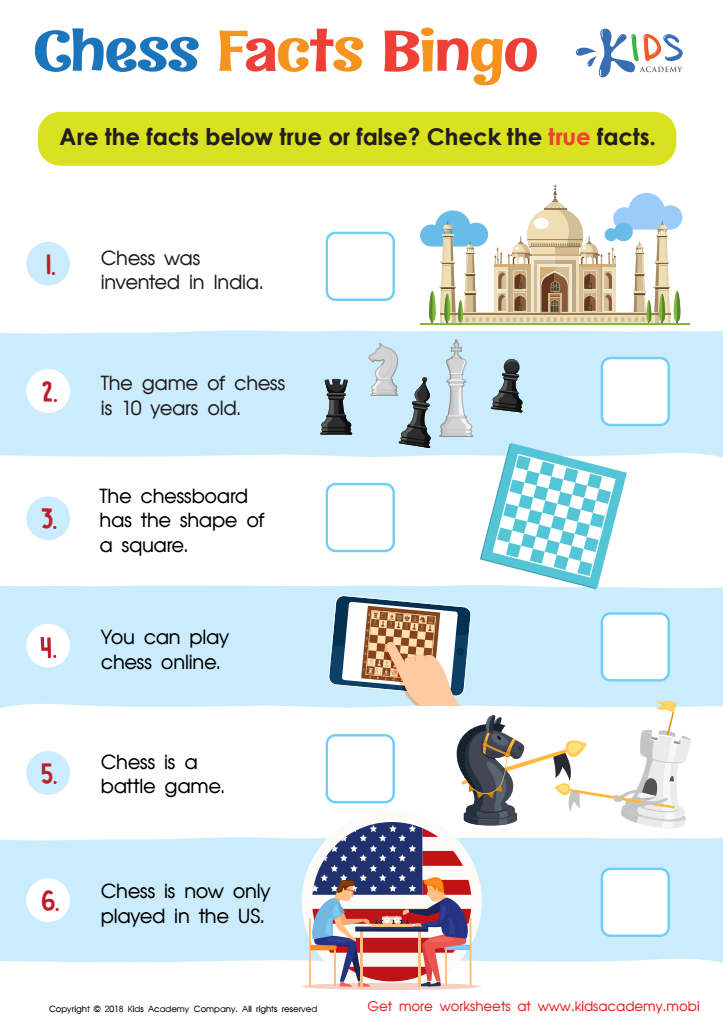

Chess Facts Bingo Worksheet
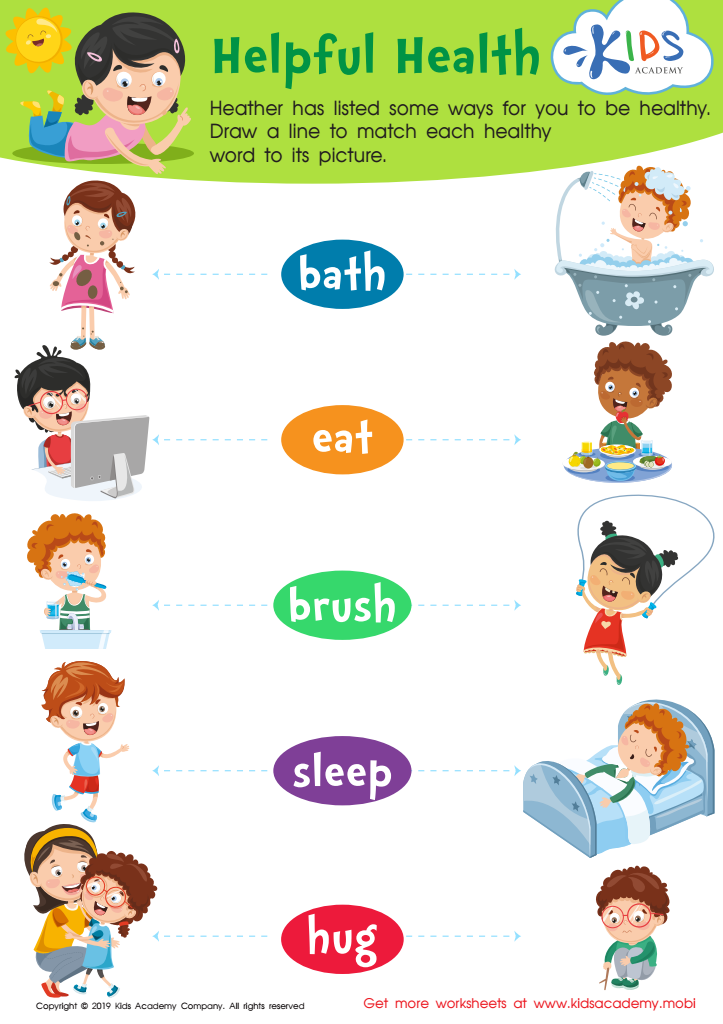

Helpful Health Worksheet
Reading comprehension matching activities are vital for children aged 6-9 as they lay the foundation for essential literacy skills. Parents and teachers should prioritize these activities because they promote cognitive and linguistic development, critical for academic success. At this age, children are transitioning from learning to read to reading to learn. Matching exercises enhance vocabulary, reinforce sentence structure, and build a solid understanding of texts, fostering better interpretation and recall.
Engaging in comprehension matching helps young children make connections between words, phrases, and their meanings, which boosts their ability to comprehend stories and informational texts. This skill is indispensable, not only for subjects like language arts but across all areas of the curriculum – from understanding math problems to following instructions in science experiments.
Additionally, reading comprehension matching can significantly improve concentration and attention to detail, teach patience, and develop problem-solving skills. It encourages independent learning and instills a love for reading, setting a strong groundwork for further education.
Involving parents in these activities also provides valuable time for bonding and reinforces the learning happening in the classroom. When teachers and parents collaborate to support reading development, and prioritize activities like matching, children benefit from a cohesive and enriched learning environment that nurtures their growth at this critical stage.
 Assign to My Students
Assign to My Students


